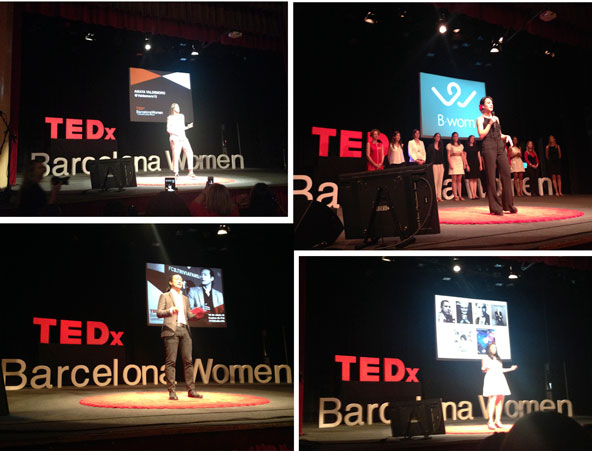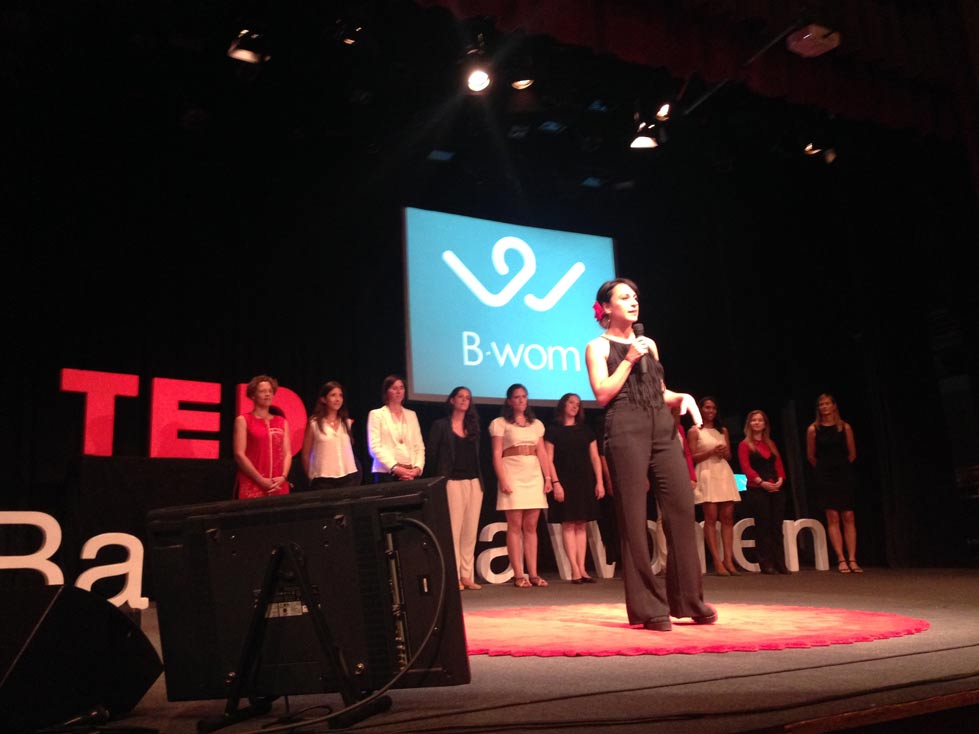TEDxBarcelonaWomen was a success.
Guess what, the next million-dollar opportunity lies predominately with women! Female entrepreneurship is not as much of a gender issue as it is an economic one. Companies run by women are 12% more profitable and receive a 35% higher return on investment. Additionally, for every dollar invested in a woman, you can help take 4 women out of poverty. How does this change the equation?
On the 10th of June, TEDxBarcelonaWomen addressed the topic of women entrepreneurship and gender equality around these three ideas: Invest in women globally and locally, shift the balance together, and change the narrative. The event took place in Barcelona’s Casino of Poblenou and tickets were sold out several days before.
As a female entrepreneur, the event was full of takeaways:
– A woman in a leadership position is a force to be reckoned with. Women can be a ‘people-person’, empathetic, result driven, and badass all at the same time. Shelley Brudine (@shelleyprevost), from http://lamppostgroup.com, invited the audience to find our power within, sharing it with the world.
– Investing in women is making the case for the majority of the world population. Babou Olengha, currently living in Norway and originally from the Democratic Republic of Congo, stressed that you are not a victim of your circumstances and you can fulfill your potential. This is the reason she has funded Mumsmeanbusiness.com, a platform helping mumpreneurs raise the necessary funds needed to start and grow successful businesses.
– It is necessary to overcome unconscious bias on both sides of the table; “why does only 4% of venture capital and 20% of angel capital go to women?” Questioned by Anne Ravanonoa (@anneravanona), from Global Invest Her. Both men and women have to take action and follow this advice: For women, “do not take feedback personally, believe in yourself, think big and ask for that raise.” Men, “take women seriously, listen to them and invest more in them.”
– Ainoa Irurre encourages the idea that you can start the change inside your own company. Be inclusive within speech, more transparent, and convince your directors how much more balanced your company can be with both genders.
There has been a shift in the conversation from a discussion that only involved women, “men and women should embrace this theme together. Both need to be more aware of the action that needs to be taken to overcome this difference”.
However, there are still some challenges to overcome:
– Education is one of the main influences of change. Wherever you are whether at home, school, or work, everyday we can work on gender equality. If you are a man, or a woman, with or without children, every single one of your actions can generate your purpose. As Patricia Soley Beltran shared with the audience, “If we want to make a shift, we need to change the model”. Men can also take action. Tomas Agnemo, (@tomasagnemo), from Men for Gender Equality Sweden, is working towards just that. “Men can transform masculinity, be care givers and stand for gender justice and be part of the change”.
– The media has an enormous influence on females of all ages. You can’t be what you can’t see. Initiatives like shestarteditthefilm.com by Nora Poggi are working to change this. Amie Williams from Global Girl Media is creating chapters around the world of teenage girls, encouraging them to tell their stories because they are important. They train them how to produce videos, blogs, etc., which allows for authority, access and a voice that could lead to change. How would females feel when they see the documentary by Nora Poggi, coming out in the next few months? How will this documentary be the voice of the teenage girls from different @globalgirlmedia chapters?
We can all practice gender equality every day. Think about the small things at home and in your companies. We can challenge our institutions to change, but more importantly, we can be the agent of change. Small changes in initial conditions can lead to exponential impact. As Shelley Prevost pointed out, “In the innovation economy we need collective intelligence, and that’s why women will win the future of work”.










Leave a Reply